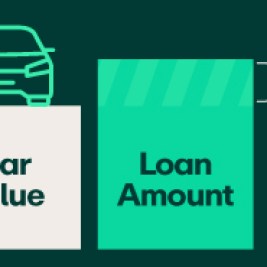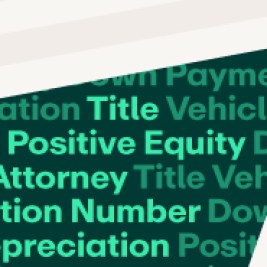
Did you know your credit score is a big deal when it comes to financing a vehicle?
It certainly is. That’s because your score helps lenders see how responsible you are as a borrower while they weigh your application. If a lender decides to offer you financing, your score will help them make other important decisions, including how much to lend and what your interest rate will be.
So, knowing a little – or even a lot – about your credit score before you shop for a vehicle can go a long way.
How you’re scored
Let’s start by looking at how a credit score is put together.
You actually have a number of credit scores which are created by credit scoring companies and lenders. One of the most widely used credit scores is the FICO score. Your score is based, in part, on information in your credit reports which provide a record of your credit habits. Those credit habits include things like whether you pay your bills on time and how long you’ve been using credit.
According to FICO, credit scores are determined by the following factors: payment history (35 percent), amounts owed (30 percent), length of credit history (15 percent), new credit and credit mix (10 percent each).
The cost of your credit scores
Typically, people with a high score find it easier to borrow money and get the lowest interest rates. For those with a low credit score, it’s the opposite. If your credit score goes down, you may find it harder to get approved for a loan or other credit in the future. Or, if you can get approved, you might end up with a higher rate that increases your overall borrowing costs.
Timely payments
Payment history is a key part of your credit score, and making consistent, timely payments on a financing account will help your score. But what could happen if you don’t keep up with your payments?
The first thing you might notice is a late fee which is added to your next bill and becomes an extra expense on your account. Not a nice surprise when you open that statement!
There may be an added interest charge to cover, too. Most auto loans are simple interest loans which calculate interest daily. So, interest can start accruing from the first day past due. The added interest could result in a balance to be paid at the end of your contract.
Then there’s the impact on your credit score to consider. When you miss a payment, the lender can notify the credit reporting agency that it is late when it’s 30 days past due. The information will then be included in your credit reports and can hurt your score.

If you miss a series of payments and don’t bring the account up to date, there can be more serious consequences. In the case of an auto loan, the lender could charge off the debt, send it to collections and may repossess and sell the vehicle. If the sale price doesn’t cover all of the debt, the amount that’s still owed could be passed on to a collection agency that will try to collect the money itself.
Late and missed payments and other outcomes like these will stay on credit reports for seven years. Their impact, however, gets less over time.
Building and rebuilding credit
Don’t be discouraged if you don’t have a good score or would like a better score than you currently have. With the right steps, a credit score can be improved.
As we’ve seen, one of the most important steps is to pay your bills on time, every time. Two options that can help with this are setting up payment reminders or automatic payments on your financing account.
When setting up automatic payments, don’t forget that you’ll need enough money in your connected bank account, or other connected account, for the credit payment to clear and avoid being overdrawn and charged any extra fees.
Besides paying your bills on time, other ways to build or rebuild your score include:
Avoid getting too close to your credit limit – Try to stay within 30 percent of the total amount you’re allowed to charge on accounts like credit cards. One way to do this is by paying off your balance each month.
A long credit history will help – A credit score is based on your credit experiences over time, so the longer you can show good habits, the better it is for your score.
Only apply for the credit you need – Credit scoring companies are also interested in how much money you need to borrow. If you apply for a lot of credit in a short period of time, they may think your finances have taken a turn for the worse.
Check your credit reports – Did you know you can get copies of your credit reports? Well, you can! Consider requesting a copy from each of the main credit reporting agencies, Equifax, Experian and TransUnion, to look for errors that could harm your score. Even an outdated address or misspelled name could make it harder to get credit. Then, if you see anything you think is incorrect, get in touch with the reporting agency and the company that provided the information to dispute it.
What to do if you can’t make a payment
While it’s very important to make all of your monthly payments, events may arise that prevent this. If you can’t make a payment on time, it’s a good idea to contact a customer service agent right away to let them know your situation. They will listen to your concerns and may be able to provide you with assistance to help you stay on track.



